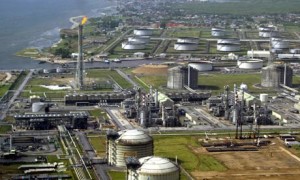
The Managing Director, Nigeria Liquefied Natural Gas (NLNG), Tony Attah, has urged the National Assembly to stop the proposed amendment to the LNG Act.
The amendment seeks to impose a three per cent Niger Delta Development Commission (NDDC) tax on the company. But Attah said the proposal was at variance with the NDDC Act.
He argued that the amendment will stifling investment and dampen investors’ confidence.
Attah told reporters that the company planned expansion project- Trains 7 and 8 might be hampered by the proposed amendment.
He said: “Since 2007 we have been making efforts to build Train 7 and 8. It is very imminent now that it is time for gas and it is time for Nigeria to have Train 7 and 8 but things have to be right. A fiscal element around the LNG Act amendment proposed, we think that is not helpful. We think that will not help Nigeria, it will not help us and Train 7 and 8. We think that has to be stopped.”
Attah warned that if the amendment was left to go on, it will erode the guarantees and assurances which had inspired the confidence of foreign investors that their investment has been protected.
“ In addition, any amendment could result in loss of income of between $53million- $124 million being amount attributable to the Nigerian Government in form of dividends, and related withholding tax,“ hr warned.
Attah said: “Speak as a Nigerian; this amendment, if done will stiffen investment and dampen investors ‘ confidence without any doubt.”
He also added that the imposition of the three per cent tax will amount to double taxation since those they buy gas from have already paid the tax to NDDC.
“The NDDC Act says we don’t qualify. We buy gas just like the power producers, like the fertiliser companies etc. The people from whom we buy gas have already paid the three per cent tax upstream. So for us it is double taxation and it is not real,” he said.
He queried the rationale behind singling out the company out of all other buyers of gas in the country. “Other organisations such as power companies, fertiliser companies, and petrochemical industries which buy gas as feedstock, same as NLNG are not liable to the NDDC Act and are not being asked to pay this additional three per cent tax.”
NLNG chief did not exenorate the NDDC in the proposed amendment which he claimed the government agency had earlier came up with the idea which the company outrightly objected and also won the case at the law court when NDDC board took the matter to court.
He saw the amendment as another attempt by the government agency to reintroduce the tax through back door.
He warned that should the law makers go ahead, the company will have no choice but to abide, however, he said the consequences might be too grievous for the nation.
He said the company will continue to engage the lawmakers and other stakeholders to see reason why the amendment should not be allowed to go on as it will not be helpful to the country.
“But I must emphasis that we are a responsible company. If it gets so hot and it becomes a law, we will comply. But it must be on record that we actually warned the nation about the potential damage and negativity this move can make and that is where we stand,” he said.
